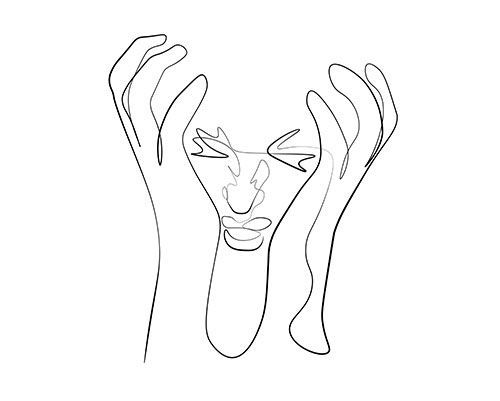Breaking the Chains: Erase the Stigma
Understanding the Stigma Around Mental Health

Introduction:
In a world that constantly emphasizes the importance of physical well-being, mental health often finds itself shrouded in a veil of stigma. Despite growing awareness and advocacy, the stigma attached to mental health remains a pervasive issue, hindering individuals from seeking help and fostering an environment of understanding. This blog aims to explore the roots of mental health stigma and shed light on the crucial need for a shift in societal attitudes.
The Historical Context:
To comprehend the stigma surrounding mental health, it's essential to delve into its historical context. Throughout history, mental health has been poorly understood, leading to the perpetuation of myths and misconceptions. In ancient times, mental disorders were often attributed to supernatural causes, resulting in the stigmatization of those affected. Fast forward to the modern era, and we still grapple with deeply ingrained stereotypes that label individuals with mental health conditions as weak, unpredictable, or dangerous.
Cultural Influences:
Cultural factors play a significant role in shaping societal attitudes towards mental health. Some cultures may view mental illness as a personal failure or a consequence of moral weakness, intensifying the stigma. Moreover, cultural norms that emphasize self-reliance and resilience can discourage individuals from seeking help, as doing so may be perceived as a sign of vulnerability.
Media Portrayals:
The media plays a pivotal role in shaping public perceptions, and unfortunately, it has often contributed to the stigmatization of mental health. Sensationalized portrayals of mental illnesses in movies, television shows, and news reports can perpetuate harmful stereotypes, further marginalizing those struggling with their mental well-being. Addressing the stigma requires a collective effort to promote accurate, empathetic representations in the media.
Fear of Discrimination:
One of the primary reasons individuals may hesitate to disclose their mental health challenges is the fear of discrimination. Whether in the workplace, educational institutions, or social circles, the stigma attached to mental health can lead to isolation and discrimination. Many people choose to suffer in silence rather than risk judgment, impacting not only their mental health but also perpetuating the cycle of stigma.
Education and Awareness:
Breaking down the stigma surrounding mental health requires a concerted effort to educate the public. Promoting mental health literacy can debunk myths, challenge stereotypes, and foster empathy. Initiatives that encourage open conversations about mental health, such as awareness campaigns, workshops, and support groups, play a crucial role in dismantling the barriers that contribute to stigma.
The Way Forward:
As we navigate the complexities of mental health stigma, it's crucial to recognize that change is possible. Advocacy, education, and empathy are key components of a society that embraces mental health as an integral aspect of overall well-being. By fostering understanding and providing support, we can create a world where individuals feel empowered to prioritize their mental health without fear of judgment or discrimination.
Conclusion:
The stigma surrounding mental health is a complex and multifaceted issue deeply rooted in history, culture, and societal attitudes. It is only through collective efforts, fueled by education, empathy, and understanding, that we can dismantle these barriers and pave the way for a more compassionate and inclusive approach to mental health. Breaking free from the chains of stigma is not just a necessity; it is a collective responsibility to ensure the well-being of individuals and society as a whole.













